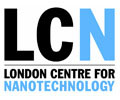“In an advance, online publication of Science this week, investigators [Dr KJ Patel] at the MRC Laboratory of Molecular Biology in Cambridge, UK, and their colleagues report that the “disruption of both FANCC and [nonhomologous end joining factor] Ku70 suppresses sensitivity to cross-linking agents, diminishes chromosome breaks, and reverses defective homologous recombination” in Fanconi anemia.” More…
This Week in Science
Video interviews of ERBI conference

“This is a series of brief film interviews with entrepreneurs, scientists and company executives from the ERBI region [including Dr Richard Henderson and Sir Gregory Winter from LMB] speaking about a wide range of topical issues such as their careers or their involvement in the biotechnology industry”.
Heptares Therapeutics extends multi-fte chemistry collaboration with oxygen healthcare (o2h)

“Executives from Heptares Therapeutics (Welwyn Garden City, UK) and O2h (Cambridge, UK) announced today an extension of the agreement under which O2h provides multi-FTE -synthetic chemistry services to support discovery programmes at Heptares… Heptares is a drug discovery company focused on identifying novel drug candidates targeting validated G-protein-coupled receptors (GPCRs) in several disease areas. Heptares was founded in 2007 and its StaR technology arose out of the pioneering work of Heptares’ founding scientists at the MRC Laboratory of Molecular Biology (Cambridge, UK) and the National Institute for Medical Research (London, UK).” More…
UK-Europe collaborations harness biology for engineering

“Four new projects, announced today, will develop biological methods that offer a new approach to antibiotic production, power generation for extremely small mechanical components, new classes of medicines and innovative techniques to study cell biology. Teams comprising researchers from the UK and elsewhere in Europe will use synthetic biology to design systems with usefully engineered properties that are based on biology, or that use an engineering approach to pick apart a complex biological process…. Dr Philip Holliger will lead a project based at the MRC Laboratory of Molecular Biology Cambridge with partners from Catholic University of Leuven, University of Bonn and Genoscope in France. The project is to develop synthetic biology methods for producing medicines known as aptamers that are based on nucleic acids (such as RNA and DNA) that have characteristics that are not found naturally.” More…
How do cells crawl?

“The amoeboid movement by which many types of cell crawl across surfaces has fascinated scientists ever since it was first observed using the earliest microscopes. Until recently, it has remained mysterious how cells extend the thin protrusion, known as a lamellipod, that enables them to move forward. In the past decade, however, extensive experimental work has shown that amoeboid motility is associated with the regulated polymerisation of branched actin filaments within the lamellipod. Now, researchers at the London Centre for Nanotechnology and in Cambridge have developed a physical model that explains how this polymerisation generates motion. In a paper published in Proceedings of the National Academy of Sciences, Christian Schreiber (Cambridge University), Murray Stewart (MRC Laboratory of Molecular Biology) and Tom Duke (LCN) propose that the key point is that the packing efficiency of randomly oriented rod-like filaments decreases rapidly as the filaments get longer.” More…
Transcriptional control in flies
“In a paper recently published in Genome Biology, Boris Adryan (Cambridge University) and Sarah Teichmann (LMB) have presented evidence that calls in to question currently-held beliefs about how transcription factors (TFs) coordinate gene expression during development to specify the fates of the different tissues in the body.” More…